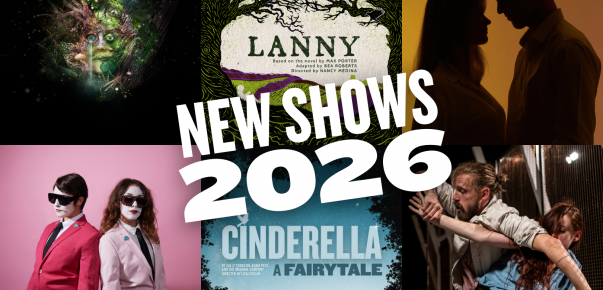The Cherry Orchard – Week Three
5 Feb 2018With just under a month to go until The Cherry Orchard’s debut, Assistant Director Evan Lordan took a quick five minutes out of the rehearsal room to fill us in on all the latest updates from Week 3.

Director Michael Boyd and Writer/Translator Rory Mullarkey have both made reference to the fact that The Cherry Orchard is often read as a naturalistic play, but perhaps it shouldn’t be. They have both mentioned similarities between The Cherry Orchard and Samuel Beckett’s absurdist tragicomedy, Waiting for Godot, especially in the first two acts where nothing happens (twice!). Just like Beckett’s work, this play is rife with gallows humour; watching a run of Act 2 earlier this week put a great big smile across my face while simultaneously making my skin crawl. All the complicated, contradictory, lovable and laughable characters in the play seem to live in this uncomfortable state of inconsistency all the time.
Chekhov is often credited with the storytelling maxim “one must never place a loaded rifle on the stage if it isn’t going to go off. It’s wrong to make promises you don’t mean to keep”. Well, Act 2 introduces two guns from the very beginning. Make of that what you will…



“Are you talking to me?” Michael Boyd has also spoken about the fact that the text suggests that at least one character is trying to make direct conversation with the audience. This is the first time that Michael has directed a Chekhov piece and he wants to stay true to the playwright’s intentions. But this is hardly turning the production into an immersive theatre event; this is an attempt to stay true to a 114-year-old text. What is beautiful is that it naturally still feels contemporary.
As Assistant Director, I am trying to make the most of working with such a talented bunch of individuals. I was a fan of The Cherry Orchard before I started on this project, but I am an even bigger fan now. So many of my preconceptions of this play have been utterly turned on their head due to everybody’s incredibly thoughtful and emotional insights into the script. Every decision made in this rehearsal room has had real purpose and every question we meet that hasn’t yet been answered galvanizes the group – more intriguing puzzles left by Chekhov for us to unravel together. It’s difficult to give any examples without creating spoilers and so, unfortunately, I will remain vague, but I will say that now that we’ve spent three weeks getting under the skin of this thing, the major decisions that are being made just feel right. It’s very hard for me to imagine another more compelling way of interpreting this show.
You can’t pigeonhole a single character; each of them as such a story to tell. One of my favourite things about Chekhov is how he uses characters to present different points of view surrounding the themes he chooses, and how they give texture to the complexity of any given subject. He sees things with complete objectivity and is able to simply present truth without making judgement. We, the audience are the ones who must decide what is right or wrong, good or bad. A situation is presented to you and you are asked to question for yourself, rather than being preached at or told what to think. That is not an easy thing for an artist to achieve, especially when you hold strong beliefs on the subject yourself. Life is never black and white; Chekhov knows this and we are a lucky audience to have him.


